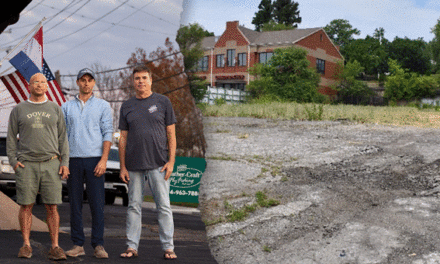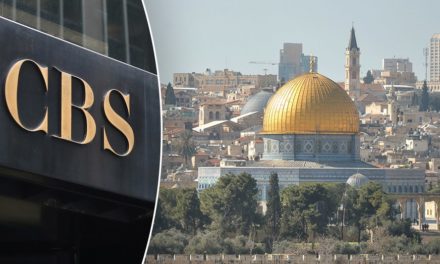The anticipation of a new papacy is often filled with hope and aspirations from millions of the faithful around the globe. As the Catholic Church reflects on its future leadership, many everyday Catholics are voicing their hopes and desires for the next Pope. These insights provide a unique glimpse into what aspects of faith, governance, and global issues they wish to see prioritized in the next papal leadership.
Within the vast tapestry of beliefs and practices in modern Catholicism, there exists a diverse array of expectations and dreams for the next pope. From a commitment to social justice and environmental stewardship to a renewed focus on inclusivity and communication, everyday Catholics are eager to express their views on what qualities they believe should be embodied by the future Holy Father.
One of the primary themes resonating among Catholic communities is the need for strong and courageous leadership that reflects the modern world’s challenges while remaining rooted in traditional teachings. Many Catholics are vocal about their desire for a pope who not only understands the complexities of contemporary issues but is also unafraid to confront them head-on. Social justice, a vibrant concern for many, stands out as a key point for many parishioners and community members.
For instance, the topic of poverty and inequality has emerged as a pressing priority. Many Catholics express a wish for the next pope to take a firm stand on these issues, advocating for the marginalized and underserved. As the encyclical “Laudato Si'” highlighted the church’s responsibility to care for the poor and protect the planet, there is a strong desire for continuity in this mission. Many contributors from various demographic backgrounds believe that a focus on uplifting the disadvantaged could galvanize strength within the community and foster a new sense of hope among believers.
An integral aspect of the desire for social justice also ties into issues of climate change. Catholics are increasingly calling on spiritual leaders to champion environmental causes. Those interviewed articulate a vision of a pope who actively engages with scientists and secular leaders to address the climate crisis, calling the church to adopt more tensive practices towards sustainability. The urgency of climate changes that affect the poorest among us prompts many to seek a papal figure who addresses this pressing global challenge, embodying a call to action that goes far beyond mere proclamations.
Many ordinary Catholics are also emphasizing the need for inclusivity in the Church. There is an overwhelming sentiment that the next pope should seek to embrace diversity, allowing for a more comprehensive representation of the faithful. Issues surrounding LGBTQ+ rights, the role of women in the church, and outreach to different cultural groups are all subjects of passionate discourse among parishioners.
Specifically, the role of women in the Catholic Church has long been a topic yearning for attention. A significant number of Catholics aspire to see their next pope embrace advancements that would allow for a more inclusive dialogue regarding women’s leadership roles. Currently, discussions surrounding the potential for women to be ordained as deacons and the calling for greater representation in decision-making positions are lively among various congregations. There is a palpable expectation that the next papacy can pivot towards a more equitable church that values the voices of women, thus establishing a foundation of trust and solidarity within the church community.
Moreover, the future of church communication, especially in an age dominated by digital interaction, has also emerged as a theme of interest. Many ordinary Catholics voice their desire for the next pope to prioritize improved communication strategies that allow for meaningful dialogue between the Church and the faithful. The challenges of disinformation, coupled with the increasing disconnect between church hierarchy and laypeople, highlight the urgency for a pontiff who values transparency and engagement.
This desire for dialogue extends beyond the church’s internal workings; it invites the next pope to become a diplomat of sorts, engaging with other faith traditions and non-religious communities to foster better understanding and cooperation. Many believe that a more collaborative approach could help alleviate tensions worldwide, showcasing the Church’s commitment to peace, dialogue, and shared human experience.
As we navigate the complex landscape of a globalized society, many Catholics hope to see papal leadership that reflects a nuanced understanding of cultural sensitivities. As issues related to race, immigration, and national identity continue to shape global conversations, the next pope is expected to employ an approach that genuinely acknowledges and addresses these multifaceted challenges. By becoming an instrument of healing, the new pope could help bridge divides within communities, encouraging reconciliation and support for those who feel disenfranchised in the current socio-political climate.
At the heart of the conversation surrounding the next pontiff is a desire for authenticity. The last couple of papacies have witnessed a push towards transparency, and many Catholics wish to see this legacy continue. There is hope for a pope who is not only approachable but also rooted in genuine pastoral care. This connection to community is essential, as believers yearn for a leader who can relate to their daily struggles and joys. Such an approach can foster a renewed sense of belonging among congregation members, bridging the gap that sometimes exists between the faithful and the hierarchical Church structure.
Another crucial element many Catholics hope will be at the forefront of the next papacy is ecumenism—the effort to promote unity among different Christian denominations. As the world becomes increasingly polarized, the call for mutual understanding and cooperation among faith traditions is more important than ever. A pope dedicated to ecumenism can play a pivotal role in healing divisions not only within Christianity but also among different religions, showcasing a cohesive approach to moral and ethical issues that affect the world.
Furthermore, many Catholics express a hope that their next pope will actively engage with global issues such as migration. With millions displaced due to conflict, poverty, and climate change, there is a collective yearning for church leadership that prioritizes advocacy for refugees and migrants. The church has historically taken a stand to welcome those in need, and many parishioners express their desire for the next pope to reaffirm this commitment through robust pastoral care and policy advocacy. By addressing these issues, the pope can galvanize the Church’s mission to provide comfort and hope and to call on believers to put faith into action.
In conclusion, as discussions about the future of the papacy intensify, the voices of everyday Catholics reveal a rich tapestry of hopes and aspirations for the next pope. The call for courageous leadership that embraces social justice, inclusivity, and authentic communication resonates strongly within the community. A renewed focus on essential global issues, a commitment to healing divisions both within and outside Christianity, and embracing the complexities of modern life are all elements that daily Catholics are expressing as vital for the Church’s future. The journey ahead is one of challenge and hope, and with each dream shared, believers remain steadfast in their faith that the next pope can guide them towards a brighter and more loving church.
































